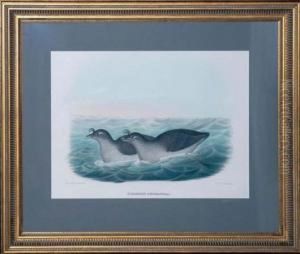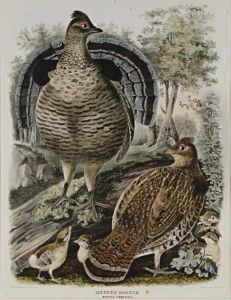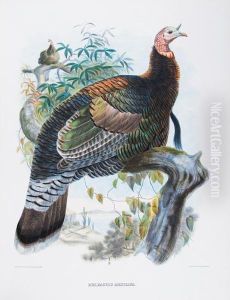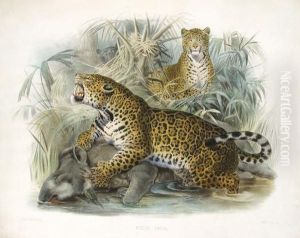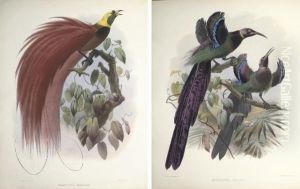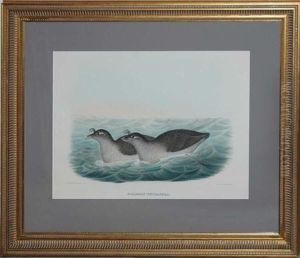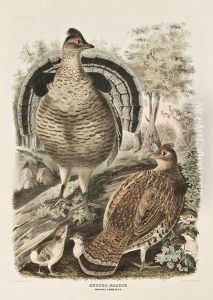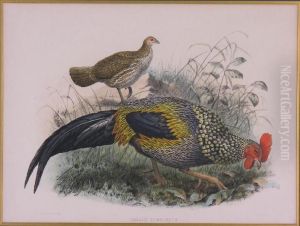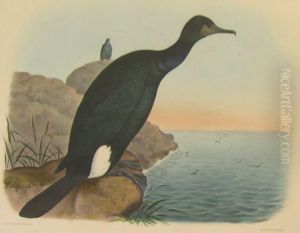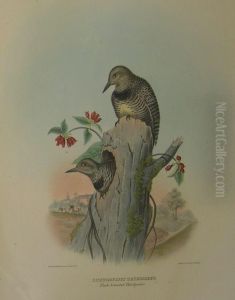Daniel Giraud Elliot Paintings
Daniel Giraud Elliot was an American zoologist and ornithologist, born in New York City on March 7, 1835. Elliot was a key figure in the field of natural history in the 19th century, and he dedicated his life to the study and classification of animals, particularly birds. He was one of the founders of the American Museum of Natural History in New York and the American Ornithologists' Union, showing his commitment to the advancement of zoological studies and conservation efforts.
Elliot's contributions to ornithology and zoology were not just limited to organizational efforts; he was also a prolific author and illustrator. He published several important works that combined scientific rigor with artistic excellence, such as 'A Monograph of the Phasianidae' (Family of Pheasants) in 1872 and 'A Monograph of the Felidae' (Family of Cats) in 1883. These publications were notable for their detailed descriptions and beautiful, hand-colored plates, which helped to categorize and bring awareness to the diversity of these animal families.
Throughout his career, Elliot sought to make the study of zoology accessible and engaging to both the scientific community and the public. His efforts in founding institutions and publishing were aimed at preserving knowledge and fostering an appreciation for the natural world. Despite facing challenges, including financial difficulties in publishing his elaborate works, Elliot's dedication never wavered. He received numerous awards and honors for his contributions, including election as a member of the National Academy of Sciences.
Elliot passed away on December 22, 1915, leaving behind a legacy that has greatly influenced the fields of ornithology and zoology. His work continues to be celebrated for its impact on the study of natural history and conservation. Daniel Giraud Elliot's commitment to documenting and preserving the diversity of life has made him a respected and influential figure in the history of science.
![A Monograph Of The Felidae Or
Family Of The Cats. New York: Published For The Subscribers By The
Author, [1878]-1883](https://www.niceartgallery.com/imgs/1292952/s/daniel-giraud-elliot-a-monograph-of-the-felidae-or-family-of-the-cats-new-york-published-for-the-subscribers-by-the-author-18781883-368e222f.jpg)
